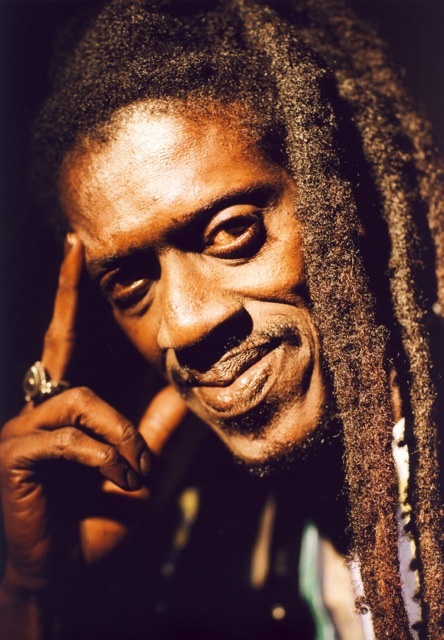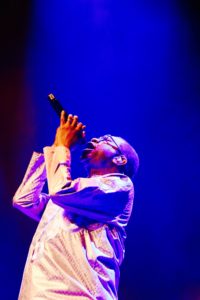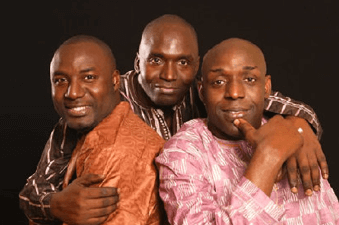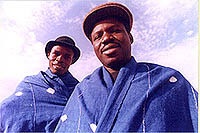Mbalax, Afro-Cuban Jazz and Sene Rap
The music of the West African country, with its still important connection to the former colonial power France, is an indispensable elixir of life for every Senegalese.The largest ethnic group are the Wolof. Together with the Serer, the Toucouleur, the Diola in the Casamance and the Mandinka, Bambara as well as Soninke, these three with their close connections to the neighboring state Mali, they shape the culture in the country to which the Senegal River gave its name. In the past, it was bands such as the Orchestre Baobab that dominated the scene with their mix of Afro-Cuban jazz and traditional Senegalese music. Today, the most popular music style is mbalax, whose fast rhythm with funk, blues and soca elements is characterized by the tama, an hourglass-shaped talking drum. The stars of this scene, such as Youssou N’Dour, Cheikh Lo, Xalam, Pape Diouf or Coumba Gwalo, are known to everyone in the country, from Dakar to Saint-Louis. But also the youth spoke out self-confidently and decisively at the end of the 80s. With their way of interpreting hip-hop and rap in Senegalese, Positive Black Soul, the Daara J Family or the rapper Akon are the icons of the new generations.
The singer and guitarist Cheikh Lo comes from a small town called Bobo Dioulasso in Burkina Faso near the Malian border. The son of Senegales parents who went to Dakar in 1978, is difficult to classify when it comes to his music. He grew up with Cuban son and Salsa and soon added Senegalese Mbalax, Wassoulou from Mali, but also pan-Africa styles such as Highlife, Funk and Afropop, to his music. Until today, the man with the impressive dreadlocks, has remained loyal to this ecstatic grooving mix. Alongside Youssou N’ Dour, he is one of the most important voices of Senegal and we finally managed to invite him for the 26th International Africa Festival.

Photo © Bugs Steffen

Photo © Bugs Steffen
Youssou N’Dour was born in the capital of Senegal, Dakar in 1959. As teenager he already sang regularly in the band “Star”, then the most successful Senegalese group. In 1979 he founded his own band “Ètoile de Dakar” which changed his name to “Super Étoile” in 1981. Over the years he developed his own, very rhythmical style which he called Mbalax-music. The dances and rhythms of his music were derived from old traditions, especially the one of wrestling (Mbalax).
He constantly breaks new musical grounds and traveled with his music to the North of Senegal, Egypt and Jamaica. Youssou N’Dour performed six times at the International Africa. You can hear a live recording from the 10th International Africa Festival in 1998.
The folkoric music of the three Senegalese brothers Djibi Guissé (guitar/vocals), Cheik Guissé (guitar/vocals) and Aliou Guissé ( djembé/ percussion) is based on different rhythms of the Toucouleur, the people living in the North of Senegal and Mauretania. They are singing in different West African languages but mainly in their own pular ( peul), which is spoken in a lot of other West African countries.
The three brothers prefer saying that their music is universal for all ages and races, influenced by different musical directions but is strongly based on their own folkoric music. Since 1988 they have been playing in an acoustic, Their songs call to mind the difficulties of daily life, youngsters’ problems. With two acoustic guitars and a djembé, the three Guissé brothers mesmerize all the audiences they meet with.

Les frères Guissé

Papa Amadou Fall and Cheikhou Coulibaly grew up in the central Senegalese town of Kaolack and have been close friends since the age of eight. In 1997 they founded the acoustic duo Pape & Cheikh which brings together the melody of folk songs with African percussion. The childhood friends sing in some of the different languages of Senegal, such as Wolof, Serere and Soce. Steeped in the traditions of their Serer region of central Senegal, but citing Bob Dylan and Cat Stevens among their prime influences, Pape and Cheikh brilliantly encompass both concepts of folk music. The main themes of their songs are love, the lives of people living together and the every day problems of Africa.